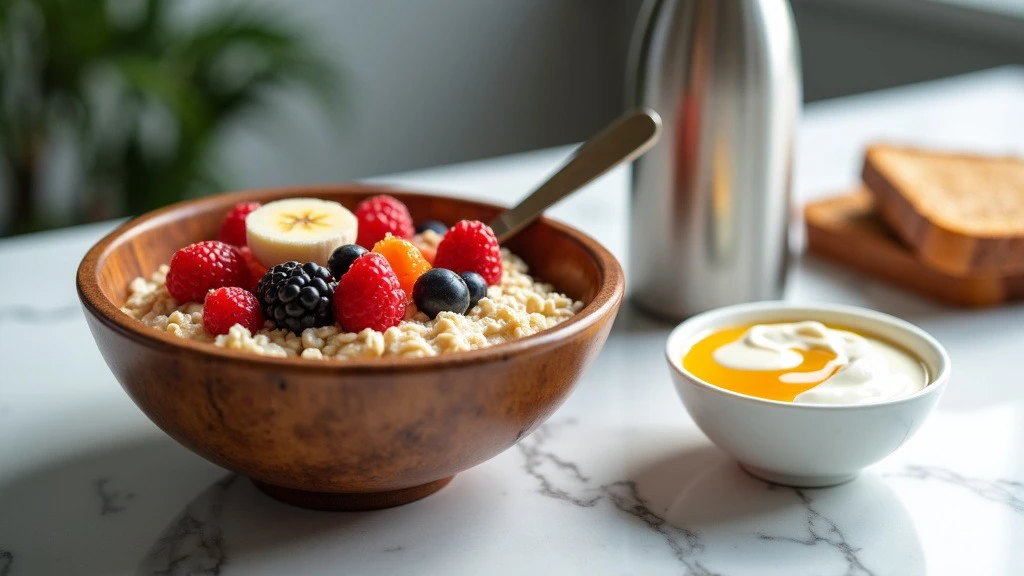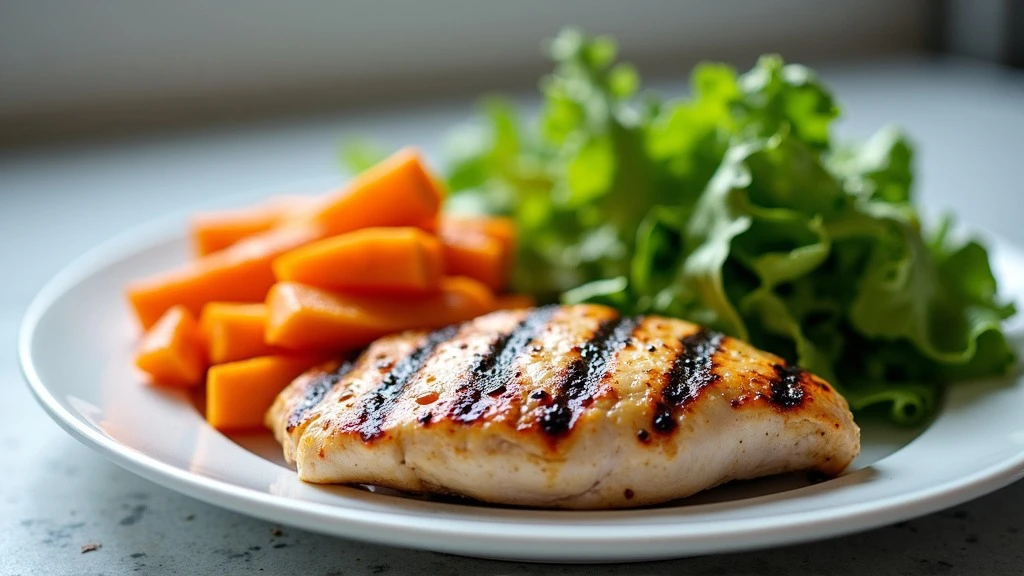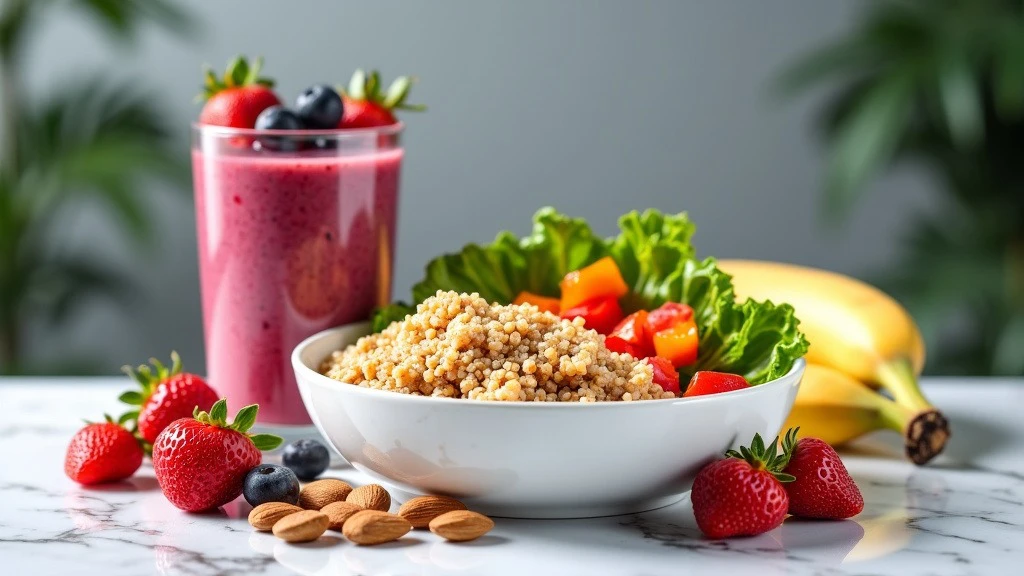You’ve probably stood in your kitchen, protein shake in hand, wondering: should I fuel up now or wait until after my workout? It’s a question that continues to spark discussion among fitness enthusiasts and nutrition experts alike.
As someone who’s experimented with both approaches, I can tell you that the answer isn’t as straightforward as we’d like. Research indicates that personal preference plays a significant role in workout nutrition timing.
The timing of your nutrition matters significantly. Your pre and post-workout fuel choices can make the difference between reaching your fitness goals and struggling through your sessions.
Whether you’re aiming to build muscle, boost endurance, or maintain energy levels during workouts, understanding nutrition timing can significantly impact your results.
Let’s explore the science behind both approaches to help you determine the best strategy for your fitness journey.
The Case for Eating Before a Workout

Working out on an empty stomach is like trying to drive a car with an empty gas tank – you might get moving, but you won’t get far. Just as your car needs fuel to run efficiently, your body needs proper nutrition to perform at its best during exercise.
According to research from the International Society of Sports Nutrition, glycogen is your muscles’ main source of energy during moderate to high-intensity exercise. When you eat carbohydrates before a workout, your body processes them into glucose, filling these critical glycogen stores.
Timing Your Pre-Workout Meal for Maximum Benefits
The clock matters when it comes to pre-workout nutrition. Eating 2-3 hours before exercise gives your body enough time to digest and absorb nutrients without feeling weighed down during your training session.
If you’re short on time, a small snack 30-60 minutes before working out can still provide quick energy. Simple carbs like a banana or a piece of toast are ideal choices that won’t sit heavily in your stomach.
Keep in mind that everyone’s digestion is different – what works perfectly for your training partner might leave you feeling sluggish. Listen to your body and adjust accordingly.
The Perfect Pre-Workout Meal Composition
A balanced pre-workout meal should include both carbohydrates for immediate energy and protein to prevent muscle breakdown. Complex carbs like oatmeal, sweet potatoes, and whole grains offer sustained energy throughout your workout.
Adding a moderate amount of protein helps kickstart muscle protein synthesis and reduces post-workout soreness. Greek yogurt, lean meats, or a protein shake are excellent options to pair with your carbs.
| Pre-Workout Meal/Snack | Components | Timing |
|---|---|---|
| Banana | Simple carbohydrates | 30-60 minutes before |
| Whole-grain toast with almond butter | Complex carbohydrates, healthy fats | 2-4 hours before |
| Oatmeal with milk and peanut butter | Complex carbohydrates, protein, healthy fats | 2-4 hours before |
| Greek yogurt with berries | Protein, simple carbohydrates | 30-60 minutes before |
| Granola bar with at least 7 grams of protein | Protein, carbohydrates | 30-60 minutes before |
| Smoothie with fruits and protein source | Carbohydrates, protein | 30-60 minutes before |
| Whole wheat toast with eggs and avocado | Complex carbohydrates, protein, healthy fats | 2-4 hours before |
Don’t forget about hydration – it’s just as crucial as solid food. Aim to drink 15-20 ounces of water two hours before exercise, followed by 5-10 ounces thirty minutes before starting your workout.
Benefits Beyond Energy
Proper pre-workout nutrition does more than just fuel your muscles. It helps maintain stable blood sugar levels, preventing that mid-workout energy crash that can derail your training session.
Research shows that eating before exercise can also improve mental focus and reduce perceived exertion, helping you push harder and longer during intense workouts. This mental edge can make the difference between a good session and a great one.
Remember that pre-workout nutrition isn’t just about performance – it’s about setting yourself up for successful recovery too. When you start with a full tank, you’re less likely to experience excessive muscle breakdown during your workout.
The Benefits of Fasted Workouts
Fasted training, where you exercise on an empty stomach, has emerged as a powerful approach for enhancing fat burning and metabolic health. Research shows that working out in a fasted state can significantly boost fat oxidation, especially during low to moderate-intensity exercises.
During fasted exercise, your body taps into stored fat for energy due to lower glucose levels. This metabolic adaptation improves fat utilization both during and after your workout.
Studies indicate that training in a fasted state can enhance insulin sensitivity more effectively than exercising after eating. According to a study published in the Journal of Physiology, fasted training is particularly effective at improving glucose tolerance and insulin sensitivity during high-fat diet periods.
Impact on Fat Burning and Metabolism
Fasted workouts trigger significant metabolic adaptations in your body. Your muscles become more efficient at using fat for fuel, a process known as fat oxidation.
Morning workouts after an overnight fast are especially effective since glycogen stores are naturally depleted, creating an optimal environment for fat burning.
Research demonstrates that exercising in a fasted state can increase fat oxidation by up to 20% compared to working out after eating, making it particularly beneficial for those looking to improve body composition.
| Study | Condition | Fat Oxidation Increase | Additional Findings |
|---|---|---|---|
| Vieira et al. (2016) | Fasted vs. Fed | Significantly higher in fasted | Higher glucose and insulin in fed state |
| Horowitz et al. | Fasted Cardio | Increased compared to fed-state | Does not equate to long-term fat loss |
| Fernández-Sánchez et al. (2024) | Fed with Caffeine | 8.1% increase | Less effective for habitual caffeine users |
Enhanced Insulin Sensitivity
One of the most significant benefits of fasted training is its positive effect on insulin sensitivity. When you exercise in a fasted state, your body becomes more responsive to insulin, helping to regulate blood sugar more effectively.
Studies show that fasted exercise can lead to improved glucose control and reduced insulin resistance, making it particularly valuable for individuals concerned about metabolic health.
Combining fasted training with a balanced diet can enhance these metabolic benefits, with improvements in insulin sensitivity lasting several hours after your workout.
Recommended Exercise Types
Low to moderate-intensity cardio exercises work particularly well for fasted training. Activities like walking, jogging, or cycling at a steady pace allow your body to efficiently tap into fat stores.
High-Intensity Interval Training (HIIT) can also be effective when done fasted, though it may take time to adapt to this intense form of exercise without fuel. Start with shorter sessions and gradually increase duration as your body adjusts.
Strength training while fasted has shown mixed results in research. While some people maintain performance well, others may notice decreased strength or endurance during heavy lifting sessions.
Post-Workout Nutrition: Fueling Recovery and Growth

After an intense workout, your muscles are like a sponge, ready to absorb nutrients that help repair and rebuild tissue. During exercise, your body depletes its glycogen stores and breaks down muscle proteins, creating a critical window for refueling.
Research demonstrates that consuming the right nutrients within two hours after exercise significantly enhances recovery and muscle growth. This timing enables your body to maximize its ability to replenish energy stores and repair damaged tissues.
The Power of Protein for Muscle Recovery
Protein serves as the building blocks for muscle repair and growth. Research indicates that consuming 20-25 grams of high-quality protein after exercise provides your body with essential amino acids needed for recovery.
Complete proteins like eggs, chicken, fish, and dairy products deliver all nine essential amino acids your muscles need. Plant-based options like quinoa and soy also provide quality protein for recovery.
For optimal results, choose easily digestible protein sources that your body can quickly break down and utilize. Greek yogurt, protein shakes, and lean meats are excellent options that support the recovery process.
Carbohydrates: Restoring Your Energy Reserves
Carbohydrates serve as your muscles’ preferred energy source. During exercise, your body depletes its glycogen (stored carbohydrate) supplies, making post-workout carb intake essential for recovery.
Sweet potatoes, whole grains, and fruits provide complex carbohydrates that replenish these vital energy stores. The combination of protein and carbs creates an optimal environment for muscle recovery.
| Food Type | Examples | Benefits |
|---|---|---|
| Carbohydrates | Sweet potatoes, whole grains, fruits, rice cakes | Replenishes glycogen stores, provides energy |
| Protein | Chicken, Greek yogurt, protein shakes, eggs | Supports muscle repair and growth |
Studies suggest aiming for a ratio of 3-4 grams of carbs for every gram of protein consumed after exercise. This balance optimizes glycogen replenishment and enhances protein synthesis.
Smart Post-Workout Meal Combinations
Creating effective post-workout meals doesn’t have to be complicated. A grilled chicken breast with roasted sweet potatoes provides an ideal balance of protein and carbs for recovery.
For a quick option, chocolate milk serves as a surprisingly effective recovery drink. It offers an optimal ratio of carbs and protein, plus essential electrolytes lost during exercise.
Another simple yet effective choice is a protein smoothie made with Greek yogurt and fruit. This combination delivers fast-digesting proteins and carbs to support the recovery process.
Remember to stay hydrated by drinking plenty of water along with your post-workout meal. Proper hydration plays a crucial role in nutrient delivery and overall recovery.
Tailoring Your Approach: Factors to Consider
Your ideal meal timing around workouts isn’t a one-size-fits-all approach. Just as every person’s body responds differently to exercise, the optimal nutrition strategy varies based on individual needs and circumstances.
When it comes to strength training, timing becomes particularly crucial. Recent studies suggest consuming a balanced meal with both protein and carbohydrates 2-3 hours before your session can maximize performance and muscle growth potential.
For those focused on endurance activities like running or cycling, the timing requirements shift significantly. A smaller, easily digestible meal 30-60 minutes before your workout can help prevent energy crashes without causing digestive discomfort.
Workout Intensity and Duration
The intensity and length of your workout play a vital role in determining your nutrition timing. High-intensity training sessions deplete energy stores more rapidly than moderate workouts, requiring more strategic fueling.
For workouts lasting less than an hour, your regular meal timing may suffice. However, sessions extending beyond 60 minutes often benefit from pre-workout nutrition to maintain energy levels throughout the exercise.
If you’re engaging in multiple training sessions per day, proper meal timing becomes even more critical. Strategic nutrition between workouts can support recovery and prepare your body for the next session.
Personal Schedule and Lifestyle
Your daily routine significantly impacts when you can realistically consume meals around workouts. Early morning exercisers face different challenges than those who train in the evening.
Some people perform better working out on an empty stomach, while others need fuel to function optimally. Research suggests that fasted training might help burn more fat, but this approach isn’t suitable for everyone.
Consider your work schedule, family commitments, and natural energy patterns when planning your meal timing. The best strategy is one you can maintain consistently over time.
Health Considerations and Medical Conditions
Certain health conditions require special attention to meal timing. For instance, individuals with diabetes need to carefully monitor blood sugar levels and time their meals accordingly.
Those with digestive issues may need more time between eating and exercise to prevent discomfort. Pay attention to how your body responds to different timing strategies and adjust accordingly.
If you’re taking medications that affect appetite or digestion, consult with your healthcare provider about optimal meal timing around workouts. They can help create a plan that supports both your health needs and fitness goals.
Pre and Post-Workout Meal Ideas

Timing your nutrition around workouts doesn’t have to be complicated. Simple, well-planned meals can make all the difference in both performance and recovery.
Here are practical meal suggestions to fuel your workouts and support your fitness goals, whether you’re training for strength, endurance, or overall health.
Quick Pre-Workout Energy Boosters
For optimal performance, eat a balanced pre-workout meal 1-2 hours before training. This timing allows for proper digestion while ensuring sustained energy throughout your session.
One of my go-to combinations is protein oatmeal with honey. The oats provide slow-releasing carbohydrates, while honey offers quick energy for immediate use.
A simple yet effective option is egg whites with whole grain bread. The eggs deliver quick-digesting protein, while the bread provides readily available carbohydrates for sustained energy.
Greek yogurt paired with granola creates an ideal balance of protein and carbs, perfect for those rushing to morning workouts. The combination offers both immediate and sustained energy release.
For those short on time, a banana with almond butter provides fast-acting carbs and healthy fats, especially effective 30-60 minutes before training.
Post-Workout Recovery Meals
The post-workout window is crucial for replenishing depleted energy stores and supporting muscle recovery. Your meal should combine high-quality protein with moderate carbohydrates.
A practical recovery meal includes lean protein and complex carbohydrates. Grilled chicken with sweet potatoes delivers the nutrients needed for optimal recovery.
If you’re watching your macros carefully, keep fats minimal immediately post-workout to optimize protein absorption and glycogen replenishment.
For those on the go, a protein shake blended with frozen berries offers a quick and effective recovery option, providing essential nutrients in an easily digestible form.
Consider adding electrolytes to your post-workout nutrition, especially after intense training sessions. A pinch of sea salt in your recovery shake can help restore mineral balance.
Convenient Supplement Options
While whole foods should form the foundation of your nutrition plan, quality supplements can provide convenient alternatives when time is limited. Choose products that align with your specific goals and dietary preferences.
A high-quality whey protein powder mixed with water or milk supports muscle recovery effectively. Look for products that provide at least 20 grams of protein per serving.
Branch chain amino acids (BCAAs) benefit those doing fasted training or when whole food options aren’t immediately available, helping minimize muscle breakdown during intense workouts.
For those following a plant-based diet, pea protein isolate provides a complete amino acid profile, particularly effective when combined with complex carbohydrates post-workout.
Remember that supplements should complement, not replace, a well-balanced diet. Use them strategically when whole food options aren’t practical.
Conclusion: Finding Your Optimal Workout Nutrition Strategy

Strategic nutrient timing can enhance your fitness journey, but there’s no one-size-fits-all solution. The key lies in understanding your body’s unique requirements and response patterns.
Whether you prefer fueling up with a protein-rich shake before training or replenishing with whole foods afterward, consistency matters more than perfect timing.
Experimentation is essential for discovering what works best for your schedule and goals. Some athletes thrive on fasted morning workouts, while others need substantial pre-workout nutrition to perform their best.
The quality of your nutrition matters significantly more than precise timing. Focus on consuming whole, nutrient-dense foods that support your training goals and overall health.
While timing can enhance your results, remember that the foundation of athletic success comes from maintaining consistent, high-quality nutrition throughout your day.







